Sahel. The new cold war expands to Africa.
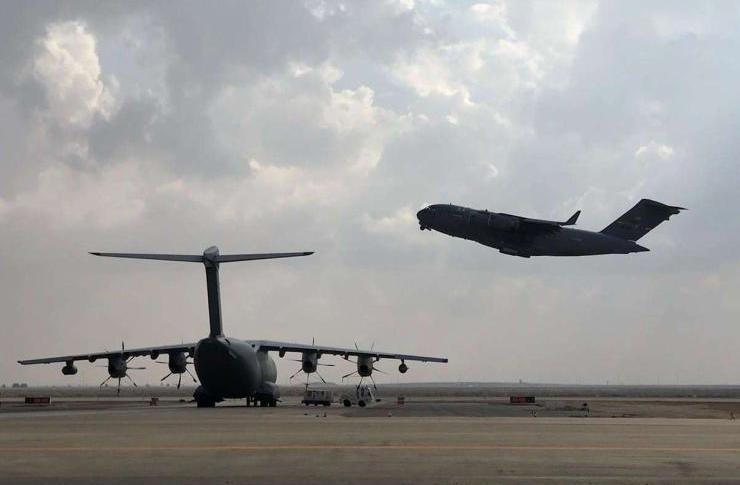
While the world’s attention is focused on Ukraine and Gaza, the expulsion of French and American troops from Niger is the worst setback for the Western powers since their withdrawal from Afghanistan in 2021. Russia, China and the jihadists are reaping the rewards of this historic defeat.
Less than four decades after the Cold War, Africa is becoming the scene of a new war of influence between the West on the one hand and Russia, Iran, and China on the other. In a matter of three years, the Western military presence there has shrunk considerably with the withdrawal of the French troops from Mali, Burkina Faso, and Niger between June 2021 and December 2023.
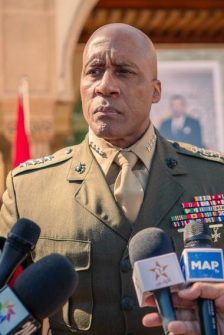
Gen. Michael Langley, head of U.S. Africa Command. (U.S. Africa Command)
In December 2023, the military junta in Niger also summoned the European EUCAP Sahel border police cooperation mission to leave the country before the end of 2024. Then, on March 16, 2024, the junta decided to close with immediate effect the American air base in Agadez, which was used for anti-jihadist drone operations and intelligence missions in Sahel and Libya. Washington had no choice but to announce in April the withdrawal of its 1,100 U.S. troops from Niger.
Several factors explain the attitude of the Niger junta, inspired by the military rulers in Mali and Burkina Faso. One is the growing determination of the members of the Alliance of Sahel States, created in September 2023 by the three juntas as a mutual defence pact
to fight foreign interference.
Niger’s suspension of the agreement with Washington followed the visit to Niamey on March 12 and 13 by a US delegation led by Assistant Secretary of State for African Affairs Molly Phee and the head of the US Africa Command, General Michael Langley, to renegotiate the Agadez base agreement, which expires in 2024.
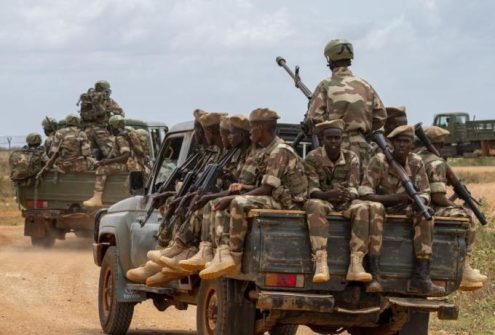
Nigerien soldiers from the capital of Niamey are moving to Agadez. Photo Richard Bumgardner/US Army
The Nigerien military was upset by the US conditionalities linking the resumption of the military cooperation suspended after the July 26, 2023, coup that overthrew the elected President Mohamed Bazoum to a commitment by them to adopt an agenda for the political transition for a return to constitutional order and the release of the ousted head of state. The Niamey junta didn’t like Washington’s demand that American soldiers not remain on the same ground as Russian troops in the neighbourhood. In a communiqué broadcast on national television on 16 March, the spokesman for the military junta, Colonel Major Amadou Abdramane, said that Niger regretted Washington’s denial of its right to choose its strategic partners as it wished. He also deplored alleged “threats” made by the US delegation and denied accusations that Niger had signed a secret deal to supply uranium to Iran. The American complaints were also motivated by the recent visit of Niger’s prime minister, Ali Mamane Lamine Zeine, to Moscow and Tehran.
The junta spokesman also stressed that the presence of American troops in Niger was unconstitutional, since the agreement on the military base was based on a mere verbal note from the American side in 2012. The authorities in Niamey also complained that they were not informed of the activities of the American soldiers in Niger.
Russian troops in the Sahel
As in Mali and Burkina-Faso, local civil society in Niger blames Western troops for the lack of results in the fight against jihadism because armed groups are still present. On 21 April, at the call of 24 civil society organisations, hundreds of people demonstrated in Agadez to demand the withdrawal of American troops.
The Western withdrawal from Niger and the Sahel is not complete, however, as Germany and Italy are struggling to maintain their military cooperation while adopting a more compromising attitude towards the juntas than the French and Americans.
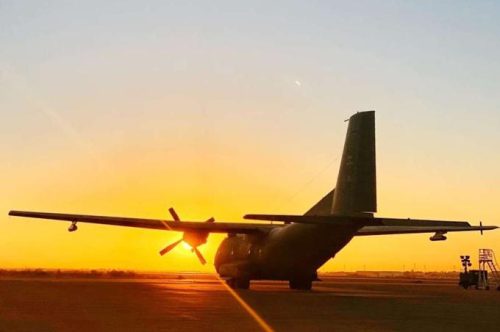
German Flight operations at Niamey Air Transport Base, with several A400M. Bundeswehr/Pinnow
At the beginning of May 2024, the Bundeswehr still had 120 soldiers stationed in Niamey.Italy also maintains a military cooperation programme and claims to be the “last NATO outpost” in the country. Some 250 Italian troops are currently training Niger’s army.
The German and Italian positions have infuriated the French, who accuse Rome and Berlin of dealing with the perpetrators of the coup and of not siding with French President Emmanuel Macron when he urged the Economic Community of West African States (ECOWAS) to take military action against Niger to free Bazoum and restore constitutional order.
Meanwhile, 100 Russian troops arrived in Niger in April, bringing weapons and beginning to implement military cooperation agreements. State media in Niamey reported that the Russian soldiers had brought an advanced air defence system that will allow the local army to have total control of the airspace. According to military experts, this system could consist of Pantsir S2 missiles, similar to those supplied to General Haftar’s Libyan National Army.
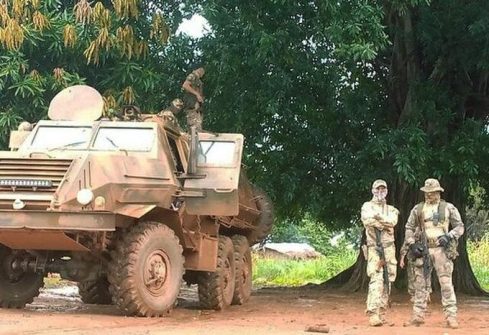
Russian mercenaries in the Central African Republic. CC BY-SA 4.0/CorbeauNews
The Russian military advisers will also train the Nigerien armed forces, one of the instructors told national television RTN in Niamey. The arrival of the Russian military followed a telephone conversation on 26 March between General Tiani and Russian President Vladimir Putin. These instructors belong to the Russian Defence Ministry’s paramilitary group, the Africa Corps, also known as the Russian Expeditionary Corps (REK), which replaced the Wagner mercenaries. According to Ulf Laessing of the Konrad Adenauer Foundation, the Russian military equipment is more of a “regime survival package” than an effective anti-jihadist tool.
It seems that the military junta is mainly concerned about possible ECOWAS interference in Niger, which is why it has acquired air defence systems that may not be very useful in the fight against the jihadists, who don’t have aircraft.
Tense relations between N’Djamena and Washington
One hundred Russian soldiers were also sent to Burkina Faso in January 2024, with 200 more to follow. The possible establishment of a Russian military base in the eastern region of the Central African Republic has been mentioned in television interviews by the country’s president, Faustin-Archange Touadera. If this project goes ahead, the Central African Republic could become the epicentre of the rivalry between the West and Russia, as the US tries to strike a deal between the private US military company Bancroft and the government in Bangui.
Chad, still a Western stronghold hosting French and US bases, reconsidered its partnership with Washington in May.
The 100 US Special Forces troops stationed at the French base of Adji Kossei near N’Djamena were to leave the country, at least temporarily, while the two governments negotiated a new security agreement, US officials said at the end of April.
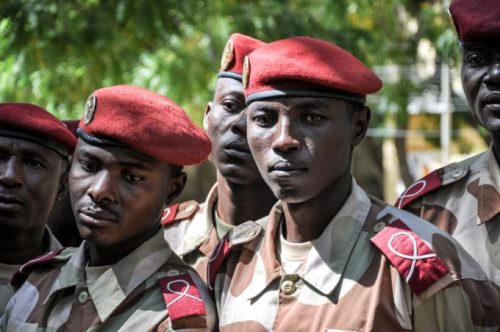
Young Chadian army soldiers. Shutterstock/yoh4nn
Unlike in Niger, the Chadian authorities have not cancelled the deal authorizing the presence of American troops on their soil but decided to close the US base after the Chadian Airforce Chief of Staff general Amine Ahmed claimed on the last 4 April that Washington had failed to produce documents justifying its military presence in N’Djamena and asked the US troops to “immediately stop” their activity at the base. Observers also point out that the Chadian President Gen. Mahamat Idriss Deby has not called for the removal of the French.
But he fostered ties with the central Sahel leaders who ousted the French and last 24 January and received a full red-carpet treatment at the Kremlin, ending up calling Russia a “sister country”.
The relationship between N’Djamena and Washington has become tense. Yet, the real reason for the closure of the US air base has nothing to do with security issues. The note to the US military attaché in N’Djamena sent by Gen. Amine Ahmed Idriss, asking for the departure of the American troops was, like in Niger, prompted by political reasons. Chadian political scientist Evariste Ngarlem Tolde says that Deby was irritated by a delegation of two Democratic Senators, Cory Booker (New Jersey) and Sara Jacobs (California) who expressed concerns about human rights and the preparation of the 6 May presidential election during their visit on the last 30 March.
Russia and Ukraine in Africa
Meanwhile, Russia, already present in Mali since 2022, is extending its influence elsewhere in Africa. On 27 March, Putin and Congo’s president, Denis Sassou Nguesso, agreed in a telephone conversation to deepen political, economic and humanitarian ties. Three weeks earlier, the TASS news agency reported Russia’s approval of a draft agreement on military cooperation with the DRC, including joint drills and exercises, visits by warships and aircraft, and military training.
Meanwhile, Ukraine is opening embassies to counter Russian influence in Africa. Since the beginning of 2024, it has opened one in the Ivory Coast and another in the Democratic Republic of Congo. Kyiv is also planning to open embassies in Accra, Maputo, Gaborone and Kigali.
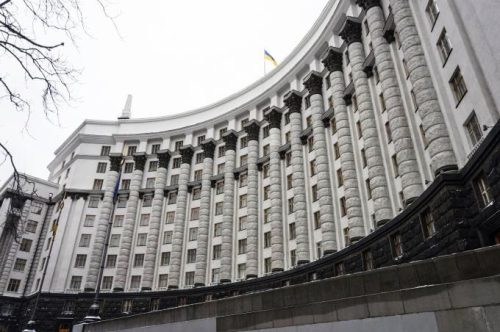
The building of the Government of Ukraine in Kiev. 123rf
Ukrainian special forces are also using kamikaze drones to fight Russian mercenaries linked to the rebel Rapid Support Forces in Sudan. In September 2023, President Volodymyr Zelenskiy met Sudanese army chief Abdel Fattah al-Burhan in Ireland to discuss ‘common security challenges’.At the moment, the Chinese are reaping the fruits on the economic front. Last April, Niger signed a $400 million memorandum of understanding with China National Petroleum Corp to sell crude oil from its Agadem oil field. The deal should help Niger’s cash-strapped government cope with mounting domestic debt. But the change in partnerships does not necessarily mean an improvement in security. The French foreign intelligence agency DGSE predicts a rapid deterioration in the security situation in Africa, which has become the epicentre of the global jihad, due to the shortcomings of local armies.
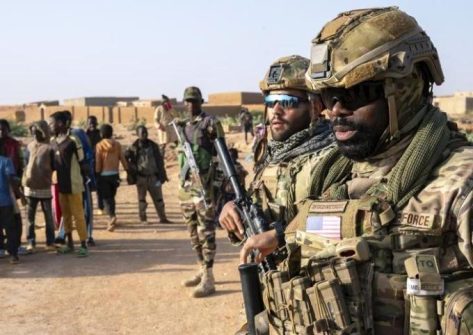
US military special forces in Niger. (Michael Matkin/U.S Army)
According to the Africa Centre for Strategic Studies, an academic institution within the US Department of Defence, the number of deaths caused by Islamist violence worldwide will rise by 20 per cent to 23,322 by 2023, including 7,762 in Burkina Faso alone and 80 per cent in the Sahel. The most vulnerable areas are western Niger on the border with Burkina Faso and the tri-border region of Niger, Mali and Benin, which has become a haven for factions such as Ansarul Islam and Katiba Macina, affiliated to the Jama’at Nusrat al-Islam wal-Muslimin, a successor to al-Qaeda and Islamic State factions locked in an ongoing rivalry for supremacy. Since the war in Ukraine began, the West has lost ground in the Sahel and elsewhere in Africa. Russia’s success or failure in fighting the Islamist insurgency in the Sahel would not necessarily be good news for the West. It would mean either a strengthening of Russian positions in Africa or a jihadist victory similar to that of the Taliban in Afghanistan, which defeated both the Soviets and NATO. (Open Photo: a NATO C-17 Globemaster III cargo aircraft, bringing personnel and cargo, taxis after landing at Air Base 201, Niger)
François Misser



